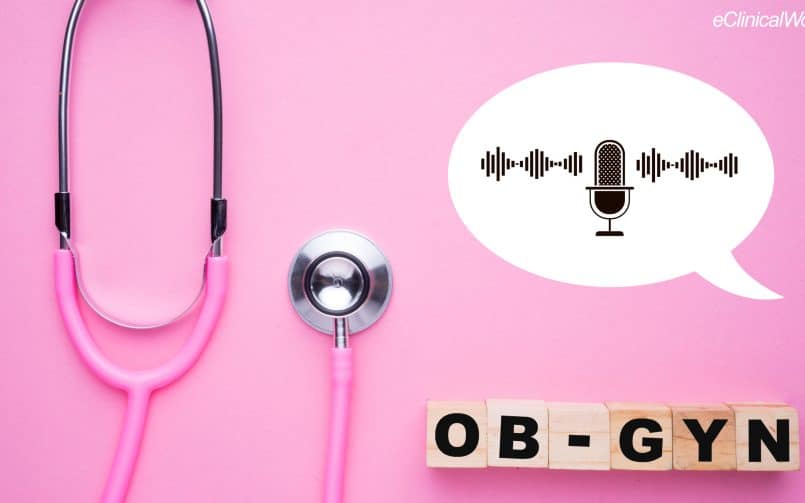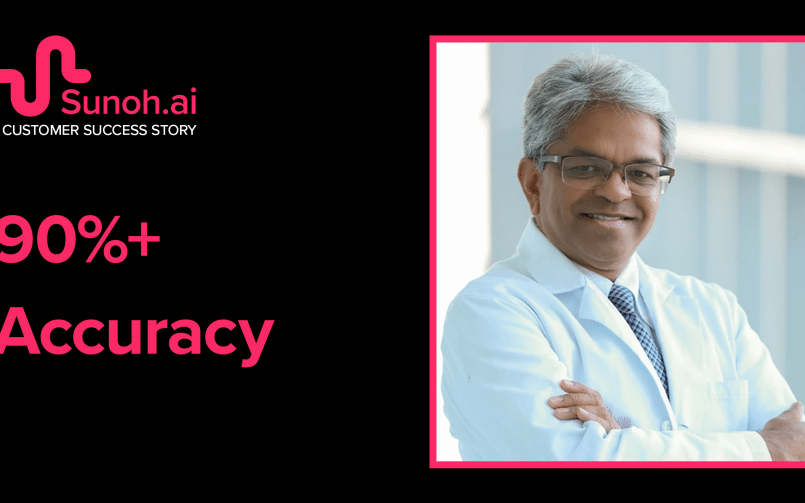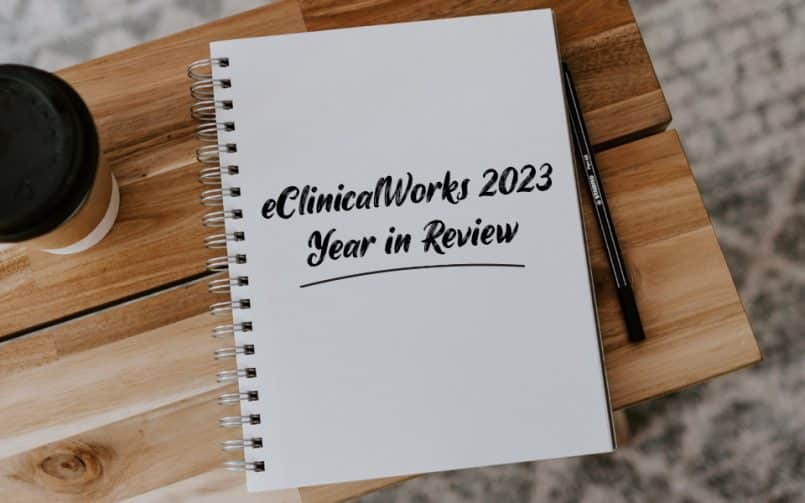Feeling burned out? There’s a tech prescription for that!
- 24 May 2024
- Blog
eClinicalWorks

While every new physician enjoys the opportunities and challenges of practicing medicine, many doctors soon find themselves among the nearly two-thirds of their profession who regularly report experiencing at least one symptom of burnout.
According to an American Medical Association report, that included 62.8 percent of all doctors in the U.S. as of September 2021 — a steady increase over the previous decade.
Overworked doctors and their staffs dream about hearing words like “Why don’t you take half a day!” The problem? That usually means taking half a day to complete their documentation.
If you’re thinking that this technologically advanced world has to offer a better way to get all that work done, you’re right — they’re called AI-powered scribes.
Dawn of the AI-powered scribes
Humans have been doing medical transcription work for many years. But the remarkable advances in artificial intelligence mean that a new generation of solutions with ambient listening capabilities are now available to complete AI documentation and AI transcription tasks.
And most of the time, in most circumstances, these AI-powered scribes are faster, cheaper, and more accurate than even the best humans. They can distinguish accents and multiple speakers and exhibit a high degree of accuracy. AI in primary care practices is particularly important given that these front-line medical practices are in constant high demand and face a long-term shortage of physicians.
According to Dr. Joseph Osuagwu, documentation is a widespread issue among providers at his practice, Goodtime Family Care in Baltimore, Maryland.
Providers at Goodtime experienced complications with traditional note taking techniques, which were labor-intensive, susceptible to inaccuracies from human mistakes, and frequently interrupted the patient interaction process. On hectic days, capturing the complete HPI and other crucial details was often missed due to a shortage of time.
Goodtime implemented Sunoh.ai, which features revolutionary, AI-powered ambient listening technology that captures detailed information about a patient visit, summarizes it, and categorizes it in a draft Progress Note, allowing providers to focus fully on patient care.
Benefits and challenges of scribes
This 2021 study from NJP Digital Medicine explores how the use of digital scribes for patient visits and charting patient visits has freed clinicians to spend more quality time with their patients and less time on documentation.
It highlights several key points:
- Human scribes may seem like the best solution at first but often wind up shifting the burden of office work to others.
- The most promising digital scribe models, the report notes, are those that “use context-sensitive word embeddings in combination with attention-based neural networks.”
- Successful implementation of digital scribes depends in part upon “the accuracy of current ASR [automatic speech recognition] systems for transcription of spontaneous speech and a digital scribe’s ability to extract all the essential information from a non-linear, fragmented conversation.”
Sunoh.ai leads the way
Just three years after the publication of that study, Sunoh.ai is proving equal to the challenge of scribing efficiently and accurately, helping lower costs for practices while improving experiences for patients and physicians.
Additionally, one of the most attractive features of Sunoh is that it can be used alongside any of the industry’s leading EHRs. For eClinicalWorks users, Sunoh is natively available in the EHR — and is fully integrated with eClinicalMobile® and eClinicalTouch®.
Restoring a better work/life balance
The bottom line is clear: Using Sunoh across your practice can save up to two hours of documentation time daily per provider. Those are two hours better spent on direct patient care or catching up on other important tasks around the office. And many doctors who implement more AI in healthcare find that they are even able to get back a bit of that fabled “pajama time,” shorthand for spending more quality time in their evenings with family and friends, or simply spending leisure time on something other than completing Progress Notes.
We can’t tell you to take half a day, but we can urge to you learn more about Sunoh.ai — click here to book a demo today.











